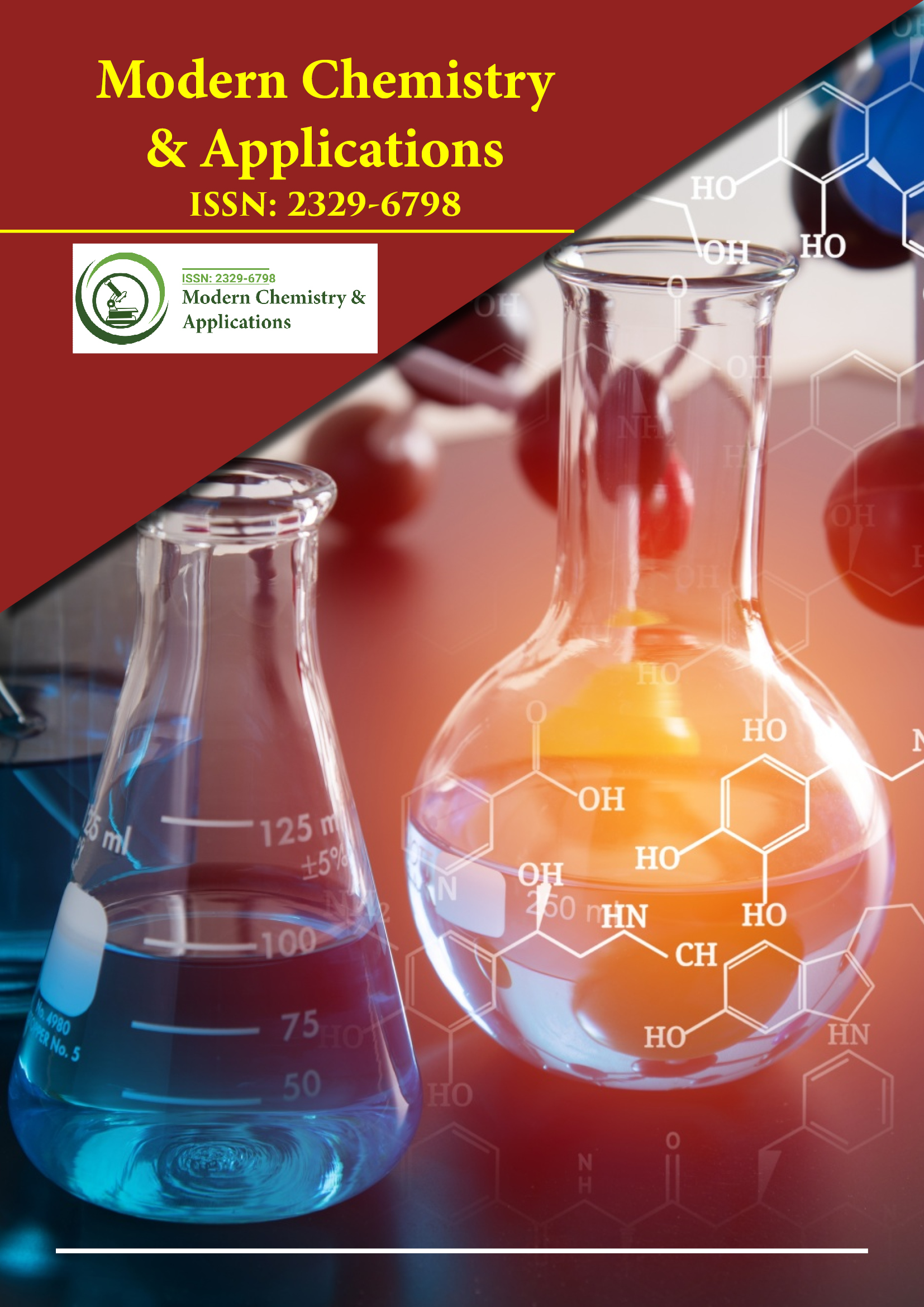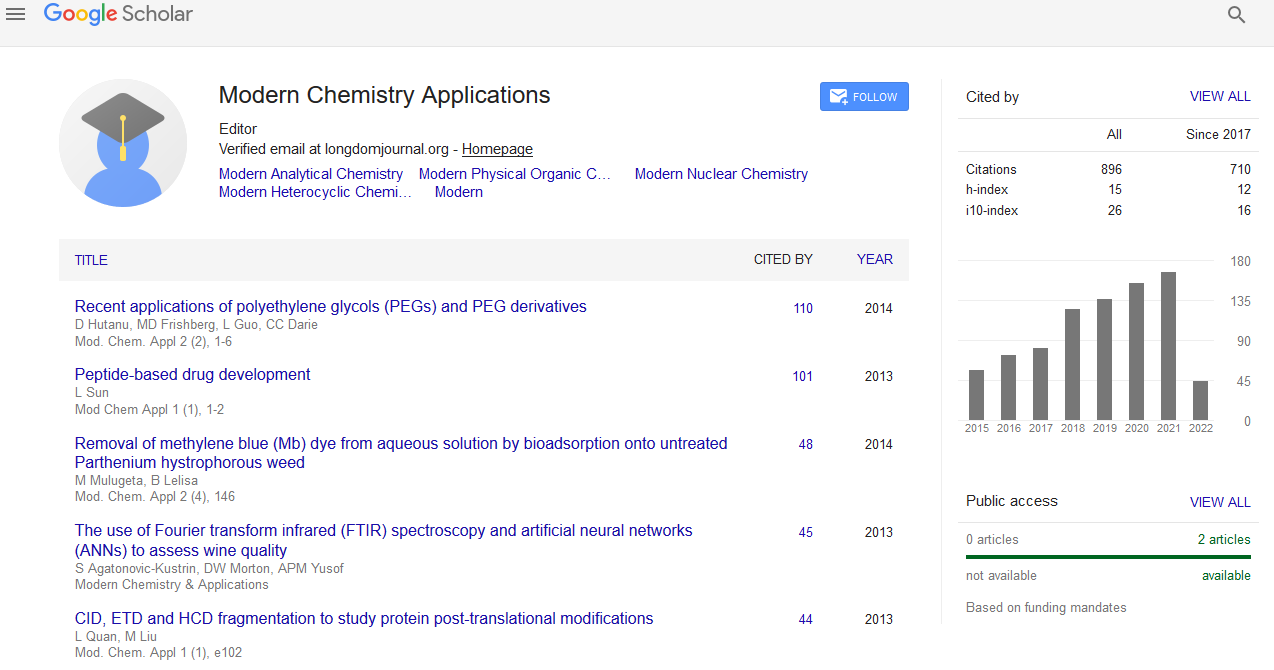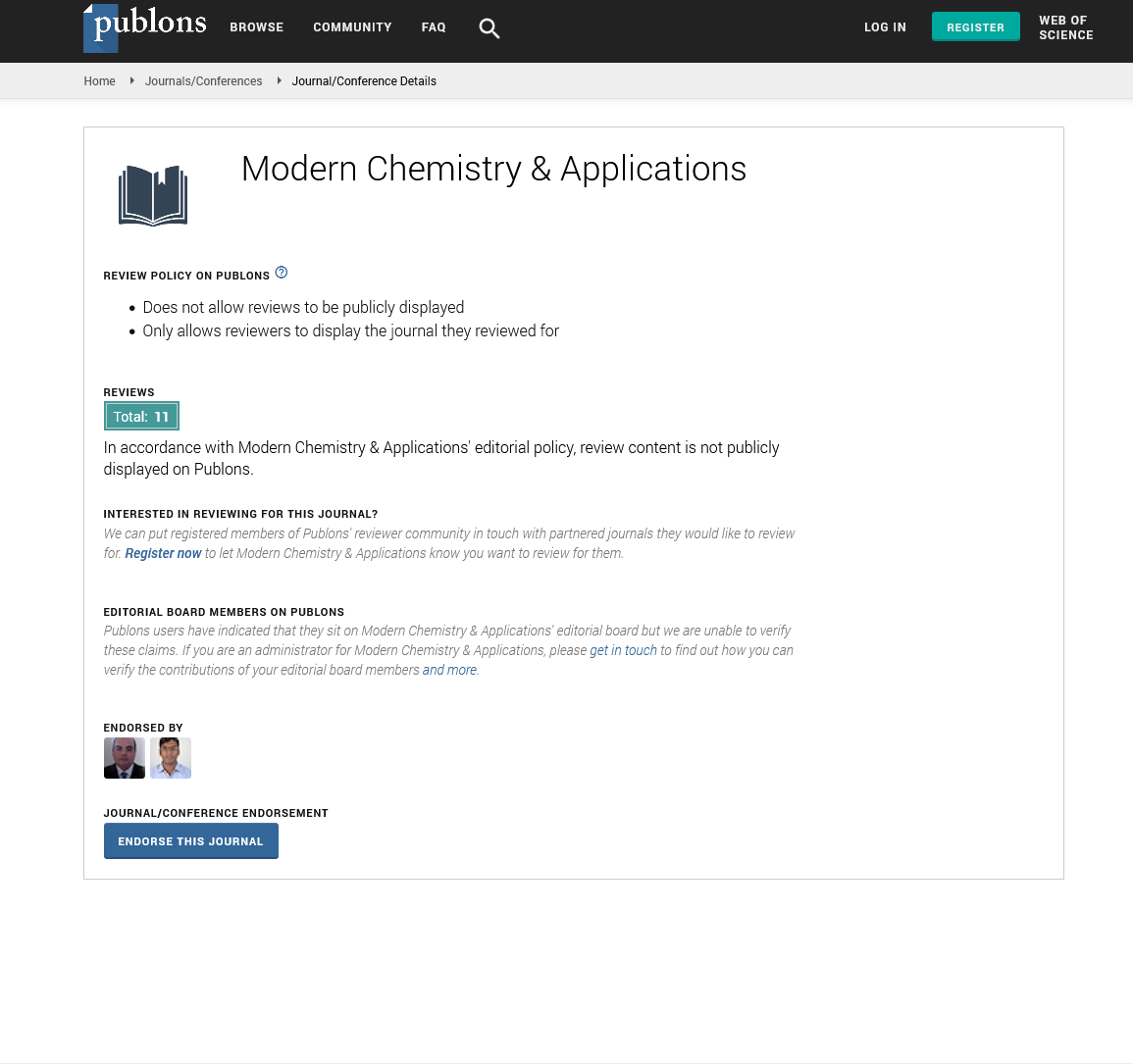Indexed In
- Open J Gate
- JournalTOCs
- RefSeek
- Hamdard University
- EBSCO A-Z
- OCLC- WorldCat
- Scholarsteer
- Publons
- Geneva Foundation for Medical Education and Research
- Google Scholar
Useful Links
Share This Page
Journal Flyer

Open Access Journals
- Agri and Aquaculture
- Biochemistry
- Bioinformatics & Systems Biology
- Business & Management
- Chemistry
- Clinical Sciences
- Engineering
- Food & Nutrition
- General Science
- Genetics & Molecular Biology
- Immunology & Microbiology
- Medical Sciences
- Neuroscience & Psychology
- Nursing & Health Care
- Pharmaceutical Sciences
Editorial - (2021) Volume 9, Issue 12
Editorial on Analytical Chemistry
Sathvik Arava*Received: 06-Dec-2021 Published: 20-Dec-2021
Abstract
Analytical chemistry is the science of acquiring, processing, and transmitting information about the composition and structure of a substance. Analytical chemistry includes classical, moist chemical techniques and modern, instrumental techniques. Classical qualitative techniques use separations inclusive of precipitation, extraction, and distillation. Identification can be primarily based totally on variations in color, odor, melting point, boiling point, solubility, radioactivity or reactivity. Classical quantitative evaluation makes use of mass or extent adjustments to quantify amount. Instrumental techniques can be used to split samples the use of chromatography, electrophoresis or subject float fractionation.
Editorial
Analytical chemistry is the science of acquiring, processing, and transmitting information about the composition and structure of a substance. Analytical chemistry includes classical, moist chemical techniques and modern, instrumental techniques. Classical qualitative techniques use separations inclusive of precipitation, extraction, and distillation. Identification can be primarily based totally on variations in color, odor, melting point, boiling point, solubility, radioactivity or reactivity. Classical quantitative evaluation makes use of mass or extent adjustments to quantify amount. Instrumental techniques can be used to split samples the use of chromatography, electrophoresis or subject float fractionation. Then qualitative and quantitative evaluation may be performed, regularly with the equal device and might use mild interaction, warmth interaction, electric powered fields or magnetic fields. Often the equal device can separate, pick out and quantify an analyte. Analytical chemistry is likewise centered on upgrades in experimental design, chemometrics, and the introduction of latest dimension tools. Analytical chemistry has wide programs to medicine, science, and engineering.
Analytical chemistry has been vital for the reason those early days of chemistry, offering strategies for figuring out which factors and chemical substances are gift with inside the item in question. During this era, extensive contributions to analytical chemistry blanketed the improvement of systematic elemental evaluation via way of means of Justus von Liebig and systematized natural evaluation primarily based totally at the unique reactions of useful groups. Most of the fundamental tendencies in analytical chemistry take region after 1900. During this era instrumental evaluation will become gradually dominant with inside the field. In specific among the fundamental spectroscopic and spectrometric strategies had been determined with inside the early twentieth century and delicate with inside the past due twentieth century. The separation sciences comply with a comparable time line of improvement and additionally turn out to be an increasing number of converted into excessive overall performance instruments.
In the Nineteen Seventies lots of those strategies started out for use collectively as hybrid strategies to obtain an entire characterization of samples. Starting in about the Nineteen Seventies into the contemporary analytical chemistry has gradually turn out to be greater which include organic questions (bioanalytical chemistry), while it had formerly been in large part targeted on inorganic or small natural molecules. Lasers were an increasing number of utilized in chemistry as probes or even to provoke and have an effect on a extensive kind of reactions. The past due twentieth century additionally noticed an growth of the software of analytical chemistry from truly educational chemical inquiries to forensic, environmental, business and scientific questions, which include in histology. Modern analytical chemistry is ruled via way of means of instrumental evaluation. Many analytical chemists cognizance on a unmarried sort of instrument. Academics have a tendency to both cognizances on new packages and discoveries or on new strategies of evaluation.
The discovery of a chemical found in blood that will increase the threat of most cancers could be a discovery that an analytical chemist is probably concerned in. An attempt to broaden a brand new approach would possibly contain the usage of a tunable laser to boom the specificity and sensitivity of a spectrometric approach. Many strategies, as soon as evolved, are saved purposely static in order that facts may be in comparison over lengthy durations of time. This is in particular real in business great assurance (QA), forensic and environmental packages. Analytical chemistry performs an increasing number of vital function with inside the pharmaceutical enterprise wherein, other than QA, it's far utilized in discovery of latest drug applicants and in medical packages wherein information the interactions among the drug and the affected person are critical.
Citation: Arava S (2021) Editorial Note on Chalcone. J Mod Chem App. 10:342.
Copyright: © 2021 Arava S. This is an open-access article distributed under the terms of the Creative Commons Attribution License, which permits unrestricted use, distribution, and reproduction in any medium, provided the original author and source are credited.


